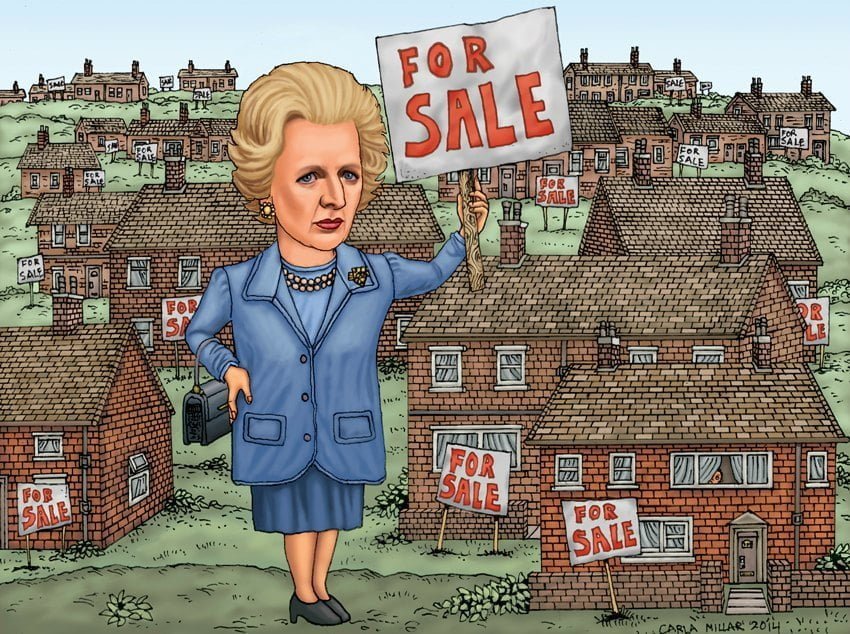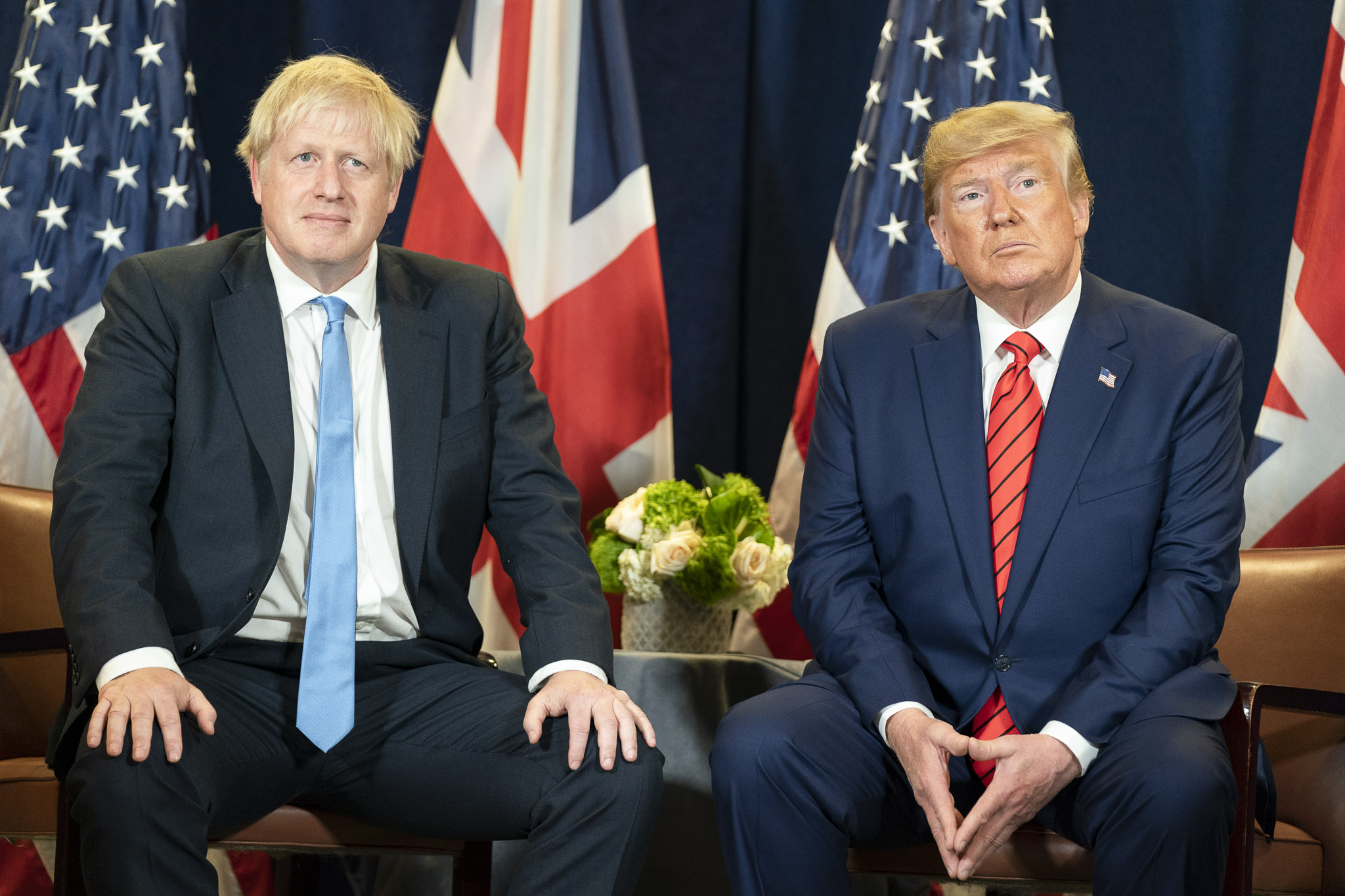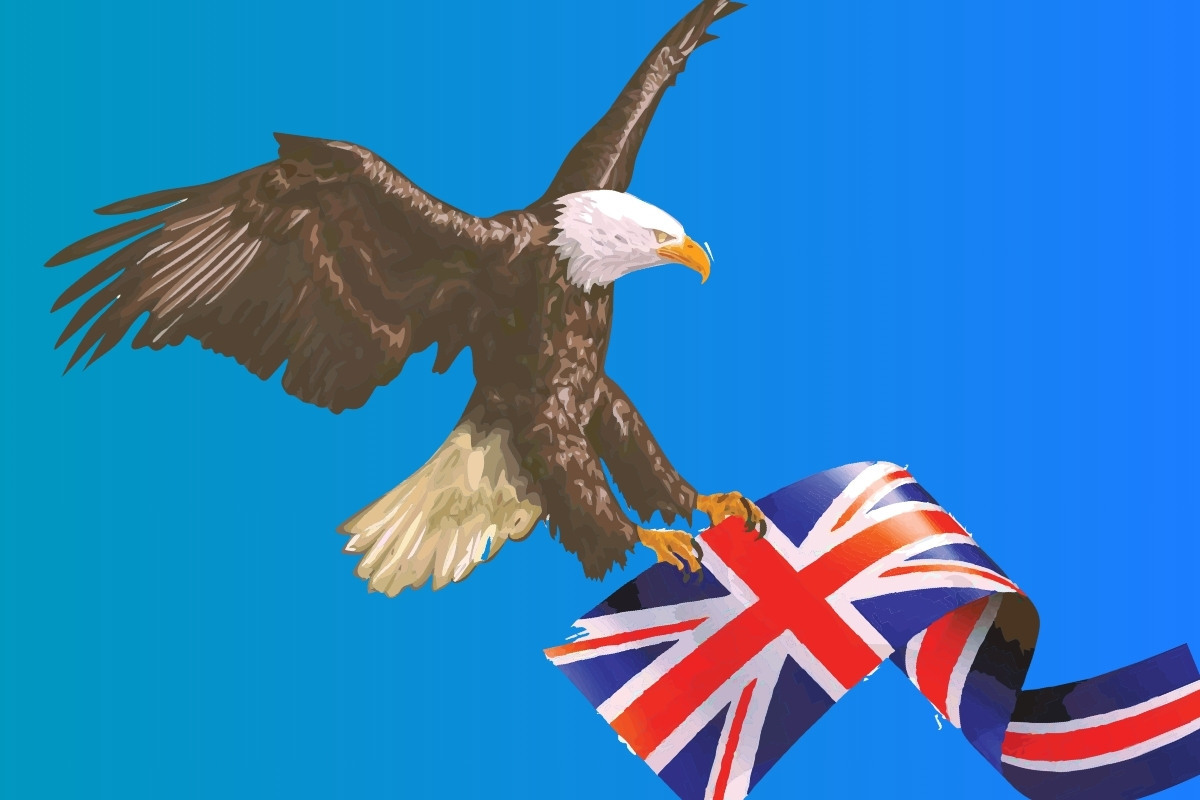Vassal State: How America Runs Britain by Angus Hanton argues that Britain has become an effective colony of America and its corporations.
The author asks of the so-called ‘special relationship’ between the UK and the US:
“What does a ‘partnership’ really look like when one side is the mightiest superpower in the history of the world and holds an overwhelming stake in the other country’s economy?”
Whenever Britain’s fortunes hit a new low, lots of similar books come out to offer ‘solutions’ to the powers that be. They all fixate on one aspect of the crisis, lay it out in extreme detail, and offer a simple panacea.
In this case, Hanton – a liberal mirror image of a Brexiteer – proposes that Britain “take back control” by severing itself from America.
The timing of the books’ release is why it has taken off. Published just before Trump’s return to power, this book is a liberal’s attempt to wake the British capitalists up to the scale of their American “vassalage”, now that Britain is faced with the “grave” danger of America “breaking with the values [read: interests] shared between our two countries for the past century.”
Owned
Hanton extensively lays out the economic domination of American corporations in Britain. This domination not only comes in the form of obviously American shops and commodities like McDonald’s and Coca-Cola.
American capitalists have a virtual monopoly over the “toll-roads and pipes” – i.e. the digital infrastructure – upon which British commerce depends.
This includes payment services (Visa, Mastercard, Paypal and Apple Pay), marketplaces (Amazon, Ticketmaster, Indeed, Etsy); subscription services (Netflix, Amazon Prime, Zipcar, Tinder); social media platforms (Whatsapp, Reddit, Slack, Instagram); and digital intermediaries (Uber, Deliveroo, Lyft, Airbnb).
Hundreds of formerly ‘British’ brands including Weetabix, HP Sauce, Butlins, Poundland, and most of the Premier League have been bought up. Hanton describes London to New York as the “biggest route of cross-border takeovers in the world”, as 25 percent of the FTSE 350 stock index is now in the hands of US owners.
American companies also eat up 40 percent of NHS contracts, and have privileged access to British politicians. Over the last 20 years, almost all former British chancellors have gone to work for American finance capital.
In total, Hanton estimates that sales by US multinationals in Britain amount to a staggering 25 percent of British GDP. Under their command are almost $2 trillion worth of British assets and about 6 percent of the workforce.
What is the problem with this? The book summarises:
“American business chiefs decide what we’re paid, what we buy and how we buy it. US companies have carved up Britain between them, siphoning off enormous profits, buying up our most lucrative firms and assets, and extracting huge rents… all while paying little to no tax. Meanwhile, policymakers shape their decisions to suit the whims of our American corporate overlords.”
Britain for sale
This is all true. But it is not just American billionaires exploiting Britain. Britain is being bought up and exploited by billionaires of all nationalities.
Foreign capitalists, states, and pension funds from countries like Qatar (Harrods, the Shard, and almost The Telegraph, before the sale was uncharacteristically blocked), India (Tetley Tea and Jaguar) and China (whose investments in British infrastructure were put in the spotlight by the buyout of British Steel) have all been free to take slices of the British economy.

Of the 60 percent of British stocks that are now owned by foreign investors, Americans own 46 percent, Europeans own 26 percent, and Asians own 16 percent.
American monopolies do own the biggest slice. But this economic domination – which is true of much of the rest of the world – results from the fact that American monopolies are by far the biggest in an economy which, as the US State Department explains, “imposes few impediments to foreign ownership”.
Britain hasn’t been “singled out for a US takeover”. It has singled itself out for takeover by anyone who can afford to buy!
The policy of the British government since Thatcher has been to shift the economy almost exclusively towards financial services. To catalyse this process, as Vassal State explains – though it fixates one-sidedly on American buyers – industry and infrastructure was privatised and the doors were open wide to foreign investment.
This was a short-sighted way of propping up declining British capitalism. Even as its industry became less and less competitive, it could get by on big one-time windfalls of cash by ‘selling off the family silver’. In this, the government found a willing accomplice in the bankers of the City of London, who could make billions by facilitating this “looting”.
The consequences of this fire sale have been devastating. Britain has been hollowed out.
What is left of industry and infrastructure has been parcelled out willy-nilly to capitalist vultures, who have been allowed to asset strip them, reap gigantic dividends, and let them rot. The further this has gone, the more the British state has become reliant on foreign direct investment to make ends meet and compensate for its industrial decline.
But, with this in mind, why would returning control to British capitalists and politicians make any difference? They are the ones who oversaw this ransacking, and took an enormous cut of the profits!
British or otherwise, capitalists are capitalists: parasites interested in making money. That is why we are in this mess.
Vassal state?
What Hanton calls “vassalage” is also America’s political domination of Britain through the so-called ‘special relationship’. He laments the fact that Britain is being “puppeteered” in the service of America, even when that runs counter to its own interests.
He cites, for example, Trump’s suggestion in 2020 that the British ban all Huawei products. The cabinet, exercising its “own sovereign right to choose”, disobeyed… but all it took was one angry

phone call for Boris Johnson to quietly U-turn.
Similarly, the recent UK-US trade deal was signed on the condition that Britain accept US “security requirements” on its supply chains, i.e. that Britain kicks out Chinese capital. Both of these undermine Britain’s need to court investment from wherever it can get it.
Indeed, British capitalism long ago sacrificed its independence in this ‘special relationship’, and acts most of the time as a crony of US imperialism. That has only become more true as Britain has declined further.
However, this is a price the British ruling class are willing to pay. The whole concept of ‘vassalage’ implies that Britain has been taken over against its will.
On the contrary, the British ruling class and their politicians entered the special relationship voluntarily, as a means of preserving their power and privileges. Ever since, they have been obedient mercenaries of American imperialism.
The ‘special relationship’, along with finance and its openness to foreign capital, are precisely the rocks upon which British capitalism’s fortunes, since the eclipse of the British Empire, have been built.
Without America, Britain would be a third-rate, non-nuclear power, with absolutely no relevance on the world stage.
Hanton’s problem is not so much with what America is actually doing. He praises the ‘American way’. His problem is that Britain is only an accomplice. As he says,
“The British are only partners in that they go along with it, not in that they share the decision-making or the rewards.”
He wants British imperialism to regain the freedom to exploit and pillage on its own terms, and to get a bigger share of the loot.
“Take back control”
Hanton suggests there is a way out:
“Strong political and business leadership could prevent Britain’s state of vassalage from getting worse and maybe reverse some of its most damaging excesses.”
How? “First, stop the sellouts” and “buy British”. Then, the government should “actively support innovation” and “invest in people”.
These ‘solutions’ forget the real position of British capitalism. As the book gives plenty of evidence for, Britain has suffered an absolute decline.
It is estimated that if London is discounted, Britain is poorer than Mississippi, the poorest US state. The state is drowning in debt and is being forced to cut, not “invest in people”.

Britain’s economic deterioration, as well as its takeover, has gone so far that the scale of investment required to “take back control” on a capitalist basis would be totally unrealisable.
So is the idea that British industry, after decades of decay, could suddenly start to compete with the titanic monopolies that dominate the world market. Microsoft alone is worth more than the entire FTSE 350!
Take, for example, Britishvolt, which was supposed to be the UK’s ‘flagship’ attempt at electric vehicle battery production. Unable to raise the capital to seriously compete on the world market, it collapsed before production began. The site was later bought up by… US venture capital.
Hanton also suggests that it is “not logical for us to align with the Americans in this world situation. We need to be closer to the Europeans.”
But if Vassal State is successful at anything, it is in pointing out an important problem for the British ruling class: it is on an American leash.
As America steers a new, ‘America First’ course, Britain’s political, military and economic dependence will more and more assert itself in a way that makes it impossible to simply pick and choose between economic blocs.
Britain is in America’s sphere of influence, whether it likes it or not. Britain’s terminal decline means that it cannot be ‘independent’ as Hanton wants it to be.
But which ‘Britain’ are we talking about? Britain is a class society: the bankers and billionaires have gotten rich from all of this. The working class has had to pay for it.
Hanton wants ‘sovereignty’ for the former group – the ‘sovereignty’ to go back to the ‘glory days’, when Britain was the global hegemon, free to exploit to its heart’s desire.
This ‘sovereignty’ would still mean the vassalage of the vast majority of society to this parasitic elite. Actually “taking back control” would mean taking power from this gang, rather than just changing masters.
Only a socialist revolution – one which sweeps the international capitalist class aside, and puts the working class in power – can achieve this.






